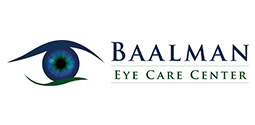Taking care of your eyes includes more than going to a yearly exam and wearing an up-to-date prescription. Although both are certainly important, there are many more things you can (and should) do to make sure you’re preventing eye problems and protecting your vision.
Diet and nutrition play an important role in the long-term health of your eyes. Certain vitamins and minerals have proven necessary for good vision while also protecting against eye diseases. A diet high in dark leafy greens such as spinach, kale, and collard greens provides us with lutein, bioflavonoids, and beta-carotene. Omega-3 fatty acids are great for those who suffer from dry eyes. Omega-3s can be found in fish, fish oil supplements, flaxseed, and walnuts. Vitamin A, C, D, E and zinc can be consumed through foods such as eggs, sweet peppers, milk, almonds, and beef. Consumption of these foods high in vitamins may reduce the risk of macular degeneration, cataracts, blindness, and dry eyes, among others.
Full-body physical exams are also important. Physicals check for diabetes and high blood pressure. These conditions can lead to diabetic retinopathy, macular degeneration, glaucoma, and ocular hypertension if left untreated.
Shielding your eyes from the sun is important, but many people believe it is just the tint of sunglasses that offers protection. In actuality it’s the UV-blocking abilities of sunglasses that guard your eyes from damage. Make sure that your eyewear is dark enough to keep you from squinting into the sun when you’re outdoors, but also check that your glasses have a UV coating. Some sunglasses have an inexpensive UV coating that rubs off over time, so your best bet is to purchase a reputable brand that offers a durable coating or is manufactured into the lens itself and will block 99–100% of UVA and UVB rays.
The number of people in the United States who smoke has been declining for several years, and now just 18% of people in the US smoke. Unfortunately, smoking still accounts for 480,000 deaths each year, and smoking increases several risk factors for poor eye health. Smoking doubles your chance of developing cataracts, a clouding of the eye that is the leading cause of blindness. Also, age-related macular degeneration (AMD) causes blind spots and impairs vision, and smokers have a three-fold increase in their risk of developing AMD. So quitting smoking is crucial for your overall health, but also to protect your eyesight.
Most people know that they should be getting twenty minutes of exercise three times a week, but eye health is yet another reason that you should get moving. Regular exercise is linked to retina health. Plus, sufficient exercise along with a balanced diet can help prevent other medical conditions that put your eyes at risk.
Aside from these things, being aware of your family’s health history is another big factor in eye health. Your physician and eye care professionals can help you check for symptoms that may be signs of known health problems common to your family, and can suggest prevention tips as well as early intervention if you discover there is a problem.
If you notice any changes in your vision—things like haziness, cloudiness, double vision, difficulty seeing at night—see your doctor right away. A healthy lifestyle, regular checkups, knowing your risk factors, and basic protective measures will help you keep your eyesight clear for as long as possible.



